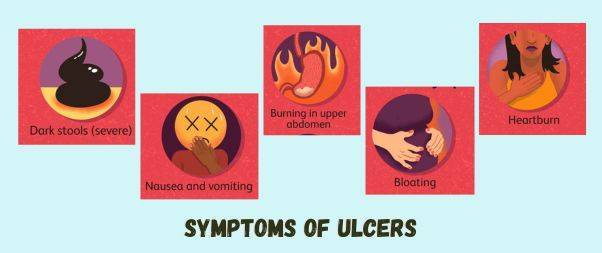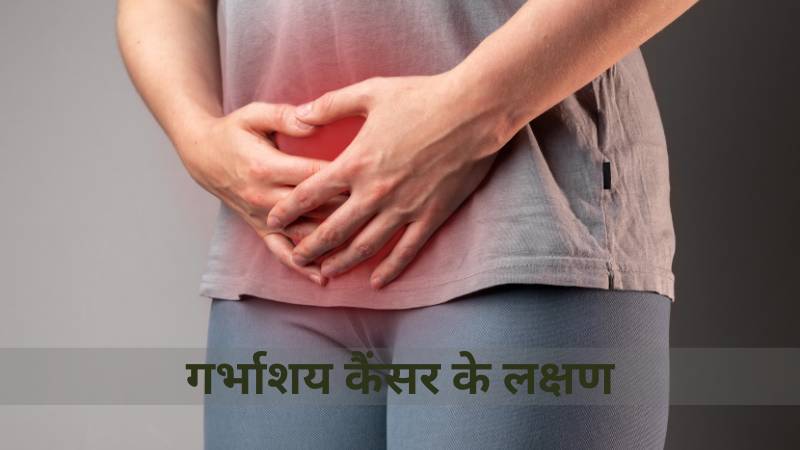Even though many people think stress or eating too much fast food can cause stomach or small intestine ulcers, there’s no strong proof of this.
Yet, these ulcers are pretty common. About one in every ten people in America will have the painful tummy ache from an ulcer at some point in their life.
This article will delve into the causes, symptoms, and treatment options for ulcers.
What is Ulcer?

Ulcers, also known as peptic ulcers, are a common health problem that affects millions of people worldwide.
An ulcer is essentially an open sore or wound that develops in the lining of the stomach, upper part of the small intestine, or lower part of the esophagus.
Peptic ulcers are like cuts or holes in the covering of the upper part of the small intestine (called the duodenum) or the stomach.
These parts touch stomach acids and juices, which can cause ulcers.
Sometimes, ulcers can also form in the esophagus, which is the tube we use to swallow food.
This can happen because of some medicines, like certain antibiotics or anti-inflammatories, or from drinking too much alcohol.
Causes and Risk Factors of Peptic Ulcers
It used to be thought that too much stomach acid was the main reason for ulcers. But now, we think that a bacteria called Helicobacter pylori (H. pylori) is often the real cause.
Research from the mid-1980s found this bacteria in over 90% of ulcers in the upper part of the small intestine and about 80% of stomach ulcers. But these numbers seem to be going down lately.
There are also other things that can lead to ulcers, especially in people who have H. pylori:
- Using too much pain medicine you can buy without a prescription, like aspirin, ibuprofen, and naproxen
- Drinking a lot of alcohol
- Being really stressed
- Smoking
Some research shows that older people are more likely to get stomach ulcers. This might be because:
- Arthritis is common in older people, and to ease the pain they might take aspirin or ibuprofen every day.
- As people get older, the valve between the stomach and the upper part of the small intestine (called the pylorus) may not work as well.
This could let too much bile (a liquid made in the liver that helps digestion) move up into the stomach and hurt the stomach lining.
Symptoms of Ulcers

Ulcers can manifest in various ways, with the most common symptom being a burning or gnawing pain in the abdomen.
This pain often feels like hunger pangs and can be temporarily relieved by eating or taking antacids.
Other symptoms can include:
- Bloating and heartburn
- Nausea or vomiting, sometimes with blood
- Unexplained weight loss
- Dark, tarry stools, which could be due to bleeding in the stomach
How Are Ulcers Diagnosed?
If your doctor suspects you have an ulcer, they’ll check you in a few ways:
- First, they’ll touch your stomach to see if it’s tender, painful, or bloated and listen to it with a special tool called a stethoscope.
- Next, they’ll test you for a bacteria called H. pylori that often causes ulcers.
- They might test your blood, poop, or breath.
- In some cases, especially for older people with symptoms like weight loss or less appetite, they might use a long, bendy tube called an endoscope to look inside your stomach. This is done while you’re sleepy from medicine.
- The tube can also take a tiny piece of an ulcer to be checked in a lab.
- They might also have you drink a thick, milky liquid called barium before they take X-rays of your stomach.
- This drink sticks to your digestive system and helps to show any problems like ulcers better on the X-rays.
Treatment
If you suspect you have an ulcer, it’s important to seek medical attention promptly.
Doctors typically use a combination of medical history, physical examination, and specialized tests to diagnose ulcers.
Once an ulcer is diagnosed, treatment often involves:
Medications: The most common treatment for ulcers is a combination of antibiotics (to kill H. pylori) and proton pump inhibitors (PPIs) or H2 blockers (to reduce stomach acid).
Lifestyle changes: Although not causes, certain lifestyle factors can exacerbate ulcers. Thus, it’s beneficial to limit or avoid alcohol, quit smoking, manage stress, and maintain a balanced diet.
Avoiding NSAIDs: If NSAIDs are causing the ulcer, your doctor may recommend alternatives or additional medication to protect your stomach and small intestine.
Surgery might be required for ulcers that are resistant to treatment, continually recurring, or cause complications like internal bleeding or perforation.
What Relieves Ulcers Pain?

Ulcer pain can be relieved by a variety of methods, depending on the cause and severity of the ulcer.
Here are some common ways to alleviate the discomfort associated with ulcers:
Medications: Over-the-counter (OTC) and prescription medications are often the first line of treatment. Antacids, H2 blockers, and proton pump inhibitors can help reduce stomach acid, which in turn can relieve ulcer pain.
Antibiotics: If your ulcer is caused by H. pylori bacteria, antibiotics can eliminate the bacteria, heal the ulcer, and reduce the pain.
Coating agents: Medications such as sucralfate can cover and protect the ulcer, which helps relieve pain.
Lifestyle changes: Avoiding foods and drinks that cause discomfort can also help. This could mean limiting or avoiding alcohol, caffeine, and spicy or acidic foods. Quitting smoking can also help, as smoking can increase stomach acid and worsen ulcer pain.
Stress management: While stress doesn’t cause ulcers, it can exacerbate the symptoms. Techniques such as meditation, deep breathing, and yoga can help manage stress levels and potentially reduce ulcer pain.
Eating smaller, more frequent meals: Instead of three large meals a day, try eating smaller meals more frequently. This can help buffer stomach acid and reduce pain.
Remember, it’s crucial to consult a healthcare provider for appropriate treatment if you suspect you have an ulcer.
The methods listed above can help relieve pain, but they should be used as part of a comprehensive treatment plan overseen by a healthcare professional.
Dietary Considerations for Managing and Preventing Stomach Ulcers
Before, people thought that certain foods could cause ulcers, but we now know that’s not true.
While what you eat can’t create or get rid of a stomach ulcer, eating healthy can be good for your gut and your overall health.
It’s usually a good idea to eat lots of fruits, veggies, and foods with fiber.
But, some foods might help get rid of H. pylori, the bacteria that often causes ulcers.
Foods that could help your body fight off H. pylori or increase your healthy bacteria include:
- Veggies like broccoli, cauliflower, cabbage, and radishes
- Green leafy veggies like spinach and kale
- Foods with lots of probiotics (good bacteria), like sauerkraut, miso, kombucha, and yogurt (especially ones with lactobacillus and Sacharomyces)
- Apples
- Berries like blueberries, raspberries, strawberries, and blackberries
- Olive oil
Also, because people with stomach ulcers often have acid reflux too, it’s a good idea to avoid spicy and sour foods while your ulcer is healing.
When should you call or see a doctor?

If you believe you might have a stomach ulcer, it’s important to talk to a doctor.
They can help you understand your symptoms and how to treat them.
Getting help for a stomach ulcer is crucial. If you don’t get treatment, ulcers and the H. pylori bacteria can cause serious problems like:
- Bleeding at the site of the ulcer, which could be very dangerous
- Penetration, which means the ulcer breaks through the wall of your stomach or intestines and affects another organ, like your pancreas
- Perforation, or when the ulcer makes a hole in the wall of your stomach or intestines
- Obstruction, or a blockage in your stomach or intestines caused by swelling of the tissues
- Stomach cancer, particularly a type called non-cardia gastric cancer
You should reach out to your doctor immediately if you have any of these symptoms:
- Feeling weak
- Having trouble breathing
- Throwing up red or black stuff, or seeing it in your poop
- Having a sudden, strong pain in your belly that doesn’t go away
Conclusion
Ulcers are a serious health issue that can cause significant discomfort and even life-threatening complications if left untreated.
However, with early diagnosis and the correct treatment, most people with ulcers can achieve a full recovery.
Note that, every individual is unique. What works for one person may not work for another.
Therefore, you should always consult with your healthcare provider for personalized medical advice.






